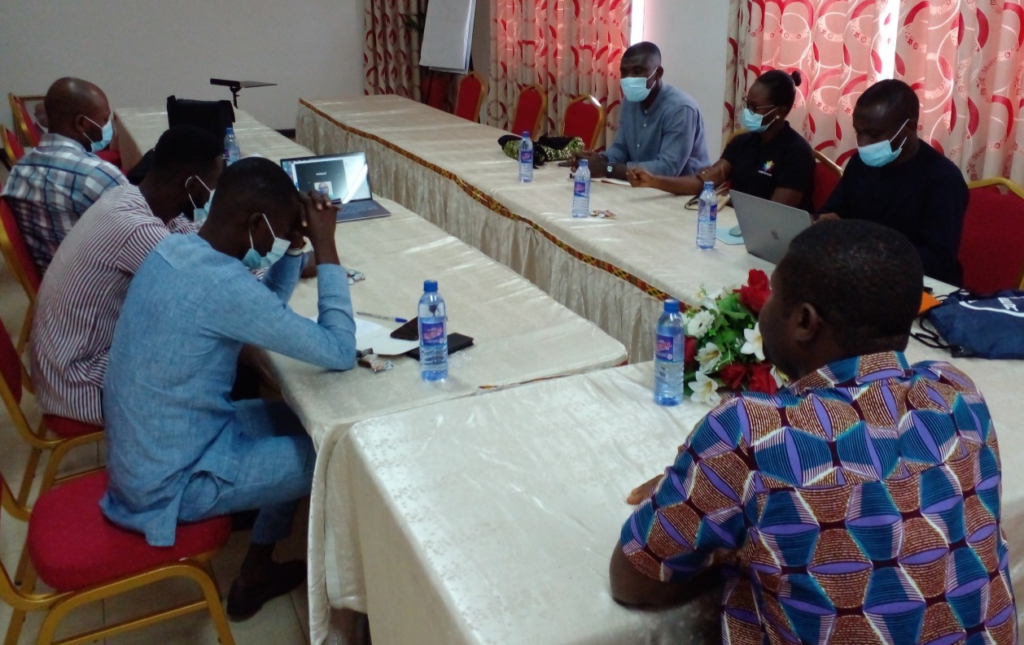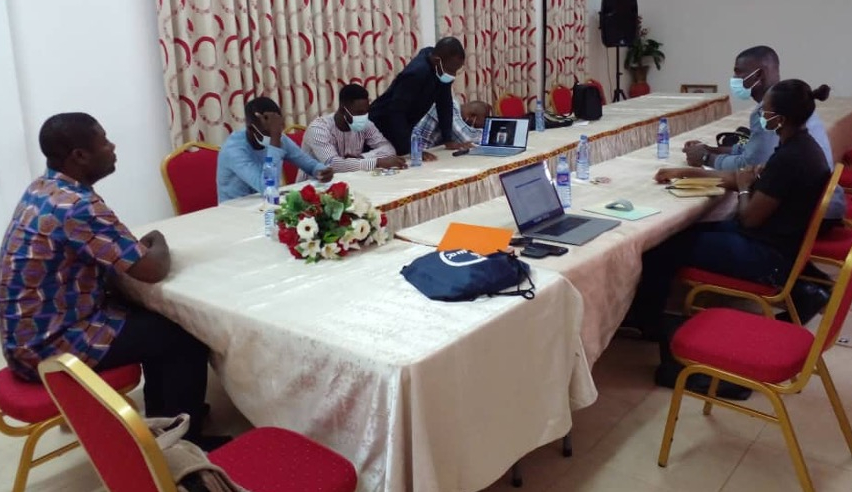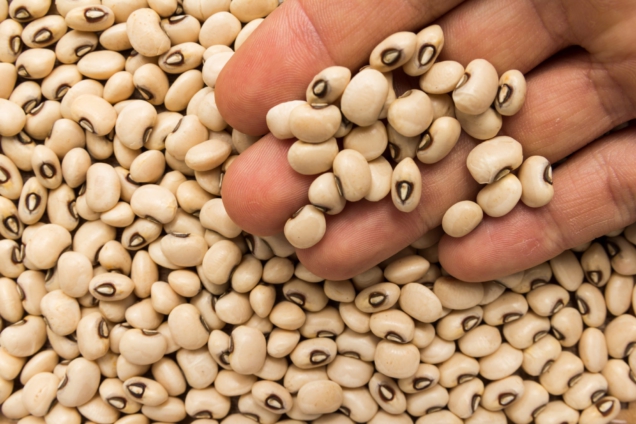A Senior Research Scientist with the Science and Technology Policy Research Institute of the Council for Scientific and Industrial Research (CSIR) says Ghana’s first genetically modified crop – the pod borer resistant cowpea (beans), will help the country deal with protein deficiency challenges among the population.
Dr Richard Ampadu-Ameyaw believes the variety will offer the country many benefits when it is eventually approved for the benefit of farmers and consumers.
“In a lot of places, being able to buy fish or meat is a challenge, so more beans will help ensure more proteins for the people,” he observed.
“If it is well managed and well farmed, it could help a lot of people move away from poverty,” he added.
Dr Ampadu-Ameyaw, who is also Country Coordinator of the Open Forum on Agricultural Biotechnology (OFAB), was speaking at a stakeholder meeting in Accra organised by Alliance for Science Ghana (AfS Ghana) on ongoing efforts by the CSIR to introduce the improved GM cowpea varieties in the country.

Scientists at the Savannah Agricultural Research Institute (SARI) of the CSIR have completed trials on the pest-resistant cowpea (beans) and will soon apply for environmental/commercial release of the GM variety.
The GM crop is expected to help farmers dramatically reduce their use of pesticides on cowpea farms while also enjoying better quality yields of this important staple food.
Cowpea, popularly called beans, is a popular delicacy that people consume in their 'waakye', 'gorbe' (rice and beans), among several diets.
A destructive pest known as Maruca pod borer has been responsible for meagre yields of the protein-rich cowpea crop, forcing farmers to spray their fields with pesticides up to 8 times in the 12-week life cycle of the crop.
But the GM cowpea resists the pest, which can destroy about 80% of all cowpeas on farmers’ fields.
They are particularly devastating because they damage not only the flowers and the buds but also destroy the pods, resulting in grain and yield loss.
The pod borer resistant cowpea (PBR cowpea), as it is called, helped farmers cut down pesticide use on their farms by up to 80% during field trials supervised by scientists from SARI.
The resistance results from introducing a gene from a naturally occurring bacteria, Bacillus thuringiensis, to control the pest.
The scientists are confident the variety will help ensure more rural residents have access to more protein-rich beans to help avoid 'kwashiorkor' and other protein deficiency diseases in children across the country.

Executive member of Alliance for Science Ghana Joseph Opoku Gakpo called for increased education on the varieties to ensure members of the public better understand what it’s all about and the objective for its development.
He disclosed the National Biosafety Authority will invite public comments when it receives a request from the CSIR scientists for its approval and urged members of the public to take interest and contribute to the discussions.
“These decisions will be made based on whatever the available scientific data is. But the National Biosafety Authority is obliged by law to invite public opinion and factor that in the decision it makes. So, let no one sit on the fence.
"Especially the scientific community, make your voices heard; this country is for all of us, and we all have every right to be part of the key decisions that will eventually shape our agricultural sector,” Mr Gakpo told the meeting.
Collins Oppong, an agricultural officer with the Directorate of Agricultural Extension Services of the Ministry of Food and Agriculture, urged the scientists working on the variety to avail themselves to the public for proper education on the improved variety.
Latest Stories
-
Herman Suede is set to release ‘How Dare You’ on April 24
3 hours -
Heal KATH: Kuapa Kokoo, Association of Garages donate 120k to support project
3 hours -
KNUST signs MOU with Valco Trust Fund, Bekwai Municipal Hospital to build student hostel
3 hours -
The influence Ronaldo has on people, Cadman Yamoah will have same on the next generation – Coach Goodwin
4 hours -
Gender Advocate Emelia Naa Ayeley Aryee Wins prestigious Merck Foundation Awards
5 hours -
South Africa bursary scandal suspects granted bail
6 hours -
Ecobank successfully repays $500m Eurobond due April 18
6 hours -
Re: Doe Adjaho, Torgbui Samlafo IV, call for Unity among Paramountcies in Anlo
6 hours -
Extortion and kidnap – a deadly journey across Mexico into the US
6 hours -
Rihanna says fashion has helped her personal ‘rediscovery’ after having children
6 hours -
Development Bank Ghana targets GH¢1bn funding for commercial banks in 2024
6 hours -
Shatta Movement apologises to Ghana Society of the Physically Disabled after backlash
7 hours -
Sammy Gyamfi writes: Tema-Mpakadan Railway Project; A railway line to nowhere
7 hours -
Bright Simons: Is the World Bank saving or harming Ghana?
8 hours -
CAF Cup: RS Berkane banned from entering Algeria because of a map of Morocco with its Sahara
8 hours

